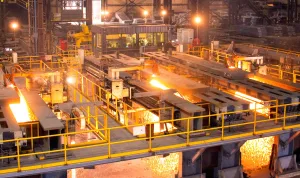Steel Under Pressure: The Impact of Economic Sanctions on Hong Kong’s Steel Market

Economic sanctions can significantly influence market dynamics, and Hong Kong’s steel industry is no exception. As a key trading hub, Hong Kong is affected by sanctions imposed by various countries, which can disrupt trade flows, alter pricing structures, and reshape competitive landscapes. This article explores how economic sanctions impact Hong Kong’s steel market, analyzing both direct and indirect effects.
1. Understanding Economic Sanctions
- Definition and Types: Economic sanctions are restrictions imposed by countries to influence the behavior of other nations. These can include trade embargoes, asset freezes, and limitations on financial transactions.
- Context for Hong Kong: As a Special Administrative Region of China, Hong Kong’s steel market is intricately linked to both local and global economies, making it vulnerable to the effects of sanctions.
2. Direct Impacts on Trade Flows
- Import and Export Restrictions: Economic sanctions can lead to direct restrictions on steel imports and exports, limiting the availability of raw materials and finished products. For instance, sanctions on certain countries may prevent Hong Kong from importing steel, causing supply shortages.
- Changes in Supplier Relationships: Sanctions can alter relationships with suppliers, forcing Hong Kong’s steel industry to seek alternative sources, often at higher costs or lower quality.
3. Price Volatility
- Market Reactions: Sanctions typically create uncertainty in the market, leading to price volatility. For instance, if major steel-producing nations face sanctions, the reduced supply can drive prices up in Hong Kong.
- Increased Costs: The need to source materials from different countries or the impact of tariffs can increase operational costs, which may be passed on to consumers, affecting the overall pricing structure in the local market.
4. Competitive Landscape Changes
- Shift in Market Dynamics: Sanctions can reshape the competitive landscape of Hong Kong’s steel market. Local producers may benefit from reduced competition if foreign competitors are sanctioned, while others may struggle to maintain their market share.
- Investment Hesitation: Economic uncertainty due to sanctions may deter foreign investment in Hong Kong’s steel sector, impacting growth and innovation.
5. Long-Term Consequences
- Economic Resilience: While short-term effects may be disruptive, economic sanctions can prompt local industries to adapt, potentially leading to long-term resilience. Steel manufacturers may diversify their supply chains and explore new markets to mitigate risks.
- Policy and Regulatory Changes: Over time, sustained sanctions may lead to shifts in government policies and regulations aimed at supporting local industries, fostering innovation, and encouraging self-sufficiency.
Conclusion
Economic sanctions have far-reaching effects on Hong Kong’s steel market, impacting trade flows, pricing structures, and competitive dynamics. By understanding these impacts, stakeholders can better navigate the challenges posed by sanctions and develop strategies to enhance resilience in an increasingly complex global landscape.



